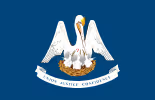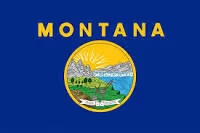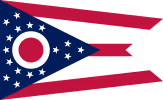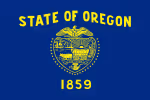Top-Rated Debt Collection Agency in Maine
Efficient and Trustworthy Debt Collection in Maine - Zero upfront fees, pay only when we succeed. Get your FREE Consultation or submit your claim today.

Experience Effortless Debt Collection in Maine with Debitura: Your Trusted Partner for Reliable Recovery
As your trusted debt recovery partner, Debitura revolutionizes the debt collection journey in Maine. Our wide-ranging services cover accounts receivables management, delivery of debt collection notices, pre-legal and legal proceedings, all the way to enforcement court proceedings. As a top-flight Debt Collection Agency in Maine, we guarantee efficient, effective solutions for outstanding debts. Our team of seasoned professionals employs an in-depth understanding of Maine's regulations and laws to address your debt-related concerns with ease. Trust us to turn your recovery hassles into an effortless process.

Comprehensive debt recovery solutions from initiation to resolution in Maine.

Data-driven, personalized debt recovery in Maine.

Harnessing 500+ global experts for comprehensive debt collection solutions.

Boosting 87% debt recovery success rate in Maine.
Key facts
- Maine Debt Collection Laws: Debt collection in Maine is governed by Title: The Impact of Climate Change on Global Food Security.
- Statute of Limitations: According to Me. Rev. Stat. Ann. tit. 14, § 751 et seq., the limitation period is 6 years.
- Interest Rates: In Maine, the statutory limit on interest rates is generally six percent.
- Late Payment Fees: Creditors in Maine can charge a maximum late fee of 4% per month after a 15-day grace period.
- Wage Garnishment: Garnishment in Maine is available after a judgment, with a limit of 25% of the debtor's disposable earnings weekly.
- Small Claims Limit: The small claims limit in Maine is $6,000, as per the District Court, Small Claims Docket.
This guide is not legal advice and laws/rules may change; consult a qualified professional for personalized assistance. Use at your own risk.
Introduction to Debt Collection In Maine
Debt collection is a legal procedure initiated by creditors to recover past-due funds. It becomes necessary when a debtor fails to fulfil their payment obligations due to financial constraints, oversight, or willful evasion. The process requires a clear understanding of the roles that the debtor, creditor, and the collection agency play.
In a debt collection scenario, the debtor is the individual or corporate body indebted to another party, the creditor. The creditor is typically a financial institution or an individual that advanced a loan with an expectation of repayment. Over time, when debtors default or delay payments, creditors usually engage collection agencies. The collection agencies are third-party entities which specialize in retrieving outstanding debts.
The role of collection agencies in Maine is crucial. They act as intermediates between the debtor and the creditor, employing various strategies to recover the debt. While the state of Maine regulates their activities to ensure fair practices, it's still worth understanding this process on a granular level.
Key Stages in Debt Collection
Debt collection in Maine, like most other jurisdictions, goes through three main stages – pre-legal, legal and debt enforcement.
The pre-legal stage entails reminding the debtor about the past-due debt, usually by phone calls or written notices. At this preliminary stage, collection agencies in Maine aim to settle the matter amicably without taking it to court.
If the debtor doesn't respond favorably to these reminders, the debts move into the legal stage. Here, the creditor or the collection agency may opt to sue the debtor for the outstanding amount. They go ahead to obtain a judgment from the court that empowers the creditor to recover their funds.
The final stage is debt enforcement. Under this stage, the court judgment obtained equips the creditor with several options to recover their monies, depending on the debtor's financial status. These measures may include garnishing the debtor's wages, seizing their assets, or imposing a lien on their property. Each mechanism is designed to compel the debtor to satisfy their outstanding debt.
It is important for debtors to understand these stages of debt collection in Maine and their rights within these processes to avoid predatory practices and maintain financial stability.
Debt Collection Laws In Maine
Under federal and state laws, consumers have a series of rights that protect them from unfair debt collection practices. The Fair Debt Collection Practices Act (FDCPA), Fair Credit Reporting Act (FCRA), Telephone Consumer Protection Act, and numerous other laws set strict protocols for debt collectors. These rules, enacted at a federal level, govern how collection agencies can leverage credit ratings, and establish guidelines for communication with debtors.
The FDCPA contains several provisions that create a safe and fair framework for debt collection. Collection agencies, for instance, are prohibited from calling the debtor at inconvenient hours, using abusive or obscene language, or providing false information about the debtor's legal rights. Moreover, they cannot overly frequent communications to the point it constitutes harassment or intimidate by giving threats of violence.
Two key regulatory bodies oversee debt collection practices in the U.S.: the Consumer Financial Protection Bureau (CFPB) and the Federal Trade Commission (FTC). These agencies work to ensure that all debt collection agencies abide by the laws and operate in the best interests of consumers.
Maine Specific Debt Collection Laws
In addition to federal laws, Maine has its own set of laws that regulate the practices and behaviors of debt collectors. Importantly, these state laws work in concert with the federal laws, ensuring an added layer of consumer protection.
Maine Fair Debt Collection Practices Act, borrowing heavily from federal legislation, outlines the rules and prohibited conduct for debt collectors in Maine. For example, it restricts communication with the debtor to reasonable hours, unless they have the debtor's permission or a court order, and stipulates how collectors can validate a debt, among other regulations.
Another significant law in Maine is the Unfair Trade Practices Act. It prohibits manipulative or deceptive business practices in the marketplace, which includes debt collection. Debt collectors who threaten to sue a debtor without intending or having the grounds to follow through, falsely suggest they are attorneys, or misrepresent themselves in any way, violate this state law.
Maine State Laws Overview
Maine's state laws include various provisions to ensure the ethical conduct of debt collectors. The state's legislation primarily coincides with the FDCPA, with a few additional consumer protections.
For instance, in Maine, a debt collector must register with the Department of Consumer Credit Protection before they can operate legally in the state. This provision is aimed at further safeguarding consumers from predatory or illegitimate collectors.
Maine's statute of limitations for debt collection is an additional indicator of its dedication to protecting consumers. For written contracts, such as credit card debts, the statute stands at six years. Once this period has expired, a debt collector is barred from filing a lawsuit against the debtor to collect the debt.
Risk Free Debt Collection
Upload your claim and get started with our 100% no-cure-no-pay collection solution.
The Debt Collection Process In Maine
Understanding the debt collection process in Maine is crucial for running a successful business or managing personal finances in this state. From evaluating the debt case to debt enforcement post-judgment, the process remains a procedural journey, governed by various laws and regulations in the state of Maine.
This guide will shed light on the main steps in the debt collection process in Maine. Having a comprehensive understanding of these steps will help both creditors and debtors navigate the debt collection process more effectively.
Here are the main steps to understand when considering the debt collection process in Maine.
Evaluating the Case
The debt collection process starts with case evaluation. In this step, creditors assess whether the case falls within the statute of limitations as outlined by Me. Rev. Stat. Ann. tit. 14, § 751 et seq., which is usually six years.
This step is crucial as it determines whether the debt is legally enforceable or not. It lays the groundwork for the subsequent steps, determining the strategy to be followed in pursuing the collection.
Pre-Legal / Amicable Phase
Once the case is evaluated and found to be within the legal framework, the pre-legal or amicable phase begins. In this phase, the debtor is contacted through various channels in an attempt to resolve the debt. The aim is to come up with an amicable solution that satisfies both parties and avoids legal proceedings.
However, if an amicable solution cannot be reached, the collection process might have to proceed with legal action.
Evaluation of Case and Legal Considerations
Before initiating legal proceedings, the case must be scrutinized further to determine whether or not it is appropriate for small claims procedures. As per the District Court, Small Claims Docket, the maximum limit for small claim cases in Maine is $6,000.
Therefore, if the debt amount supersedes this limit, other legal channels may have to be explored for the collection.
Legal Debt Collection Steps
In cases where the debt exceeds the small claims threshold or an amicable agreement cannot be reached, legal action may be necessary. This can involve employing a lawyer or engaging in small claims procedures if the criteria are met.
The legal proceedings may vary depending on the specifics of the case but often result in either a settlement or a court judgment.
Debt Enforcement Post-Judgment
Following a court judgment, the creditor has the right to enforce the debt. In Maine, this enforcement can be achieved through wage garnishment, among other means. The garnishment is subject to a limitation of 25% of the debtor's disposable weekly earnings.
This final step ensures that creditors can recuperate their owed funds if a judgment has been granted in their favor. However, it's important to bear in mind the ethical and legal considerations when pursuing a debt.
Understanding this process and the various legal considerations is key to successfully collecting a debt in Maine. Both creditors and debtors should familiarize themselves with these practices and laws to ensure their actions are legal and fair.
Statute of Limitation in Maine
A statute of limitations refers to the legal time window within which a creditor has the right to sue a debtor to collect an unpaid debt. It varies depending on the type of debt and jurisdiction. Once the time window elapses, the creditor loses their legal right to file a lawsuit against the debtor for the debt owed, although they can still try to collect the debt outside of court.
Statutes of limitations are a vital element of debt collection in Maine and everywhere else because they establish clear legal boundaries for debt disputes. These laws protect debtors from being sued for old debts, while conversely urging creditors to timely pursue debt recovery. It also encourages debt repayment by establishing legal consequences for debt defaulters if sued within the lawful period.
The statute of limitations varies widely by type of debt. For instance, credit card debt may have a different statute of limitations compared to a mortgage or a medical bill. It is also dependent on whether the debt is considered a "written contract" or "oral contract", each having different time limits.
Maine's Statute of Limitations
In Maine, the statutes of limitations for debts are governed by Me. Rev. Stat. Ann. tit. 14, § 751 et seq. According to these regulatory guidelines, the state has established a 6-year term as the statute of limitations for various types of debts.
This six-year time frame applies to written contracts. A written contract refers to any debt agreement made in writing and agreed upon by both parties. These can be credit card terms and conditions, loan agreements, mortgages, or any other form of written financial obligation. Anyone who incurs debt under a written contract has six years from the date of default or last payment before the debt is uncollectable through the courts.
Similarly, the six-year limitation also applies to oral contracts. An oral contract is an agreement between parties that isn’t written but expressed in words. Despite the absence of paperwork, these debts can be difficult to prove but are still legally binding. Like written contracts, creditors have six years to legally collect an unpaid sum from a debtor.
Lastly, the statute of limitations for injury cases and property damage in Maine also stands at six years. This implies that a lawsuit related to personal injury or damage to property can be initiated within six years from the date of occurrence.
Understanding the statute of limitations in your state is crucial in managing old debts. If contacted about an old debt, verifying the age of the debt in reference to your state’s limitations can help you develop a strategy to tackle it or even discover that the debt is no longer legally enforceable.
Interest Rates on Late Payments in Maine
Understanding the impact and legality of interest rates on late payments is a crucial aspect of responsible debt management. Particularly in the collection process, these rates can significantly affect the amount owed by the debtor. When the debtor fails to honor the original repayment timeline, creditors often compound the total sum owed through interest rates. Thus, being cognizant of how these rates apply within the state of Maine is vital for both creditors and debtors alike.
In many jurisdictions, there are statutory limits set on interest rates, generally considered as guidelines to protect consumers. In Maine, the interest rate limit is six percent. However, these limits may not be strictly enforceable if consumers consent to higher rates, essentially waiving their protections. It is often seen in credit card contracts or loan agreements where users accede to the terms including potential rate hikes in the future.
Navigating Statutory Interest Rate Limits
Creditors often circumvent statutory interest rate limits via the contract fine print. Often, consumers may find themselves obligated to pay higher interest rates as a condition for securing their loan or credit card. Depending on the contract terms, borrowers frequently concede to future rate increases, authorised by the creditors. Thus, it is imperative for the borrower to thoroughly understand the fine prints of such contracts.
The concept of 'usury' or charging excessively high-interest rates also comes into play here. Historically, the term 'usury' has been associated with a negative connotation implying the practice of charging interest irrespective of the rate. However, over time, as interest charging became more mainstream, 'usury' evolved to essentially describe exorbitant interest rates.
Interestingly, Maine does not have specific usury provisions in its statutes and regulations. Therefore, there are not any specific penalties for charging an interest rate above the six percent level. However, repeated charging of higher interest rates may invite sanctions under loan sharking practices.
Legal Guidelines on Interest Rates in Maine
The schedule below explains the basics of Maine's interest rates laws. The Maine Revised Statutes Title 9-A is the anchor reference, which proposes a legal maximum rate of interest at 6%, unless otherwise agreed. However, there is no prescribed penalty for Usury. It also underlines the interest rates on judgments. If the judgment is below $30,000, the interest rate is 15 percent. However, for judgments above $30,000, the interest rate equals the 52-week average discount rate for T-bills, supplemented by an additional 4 percent.
Nevertheless, applicable exceptions are in place for pawnbrokers, secured transactions, and consumer credit. Please remember that laws are perpetually evolving, and a Maine consumer protection attorney or your personal legal research must verify them.
Overall, the understanding of interest rates on late payments is fundamental for the debt collection process in Maine. The debtor and creditor must stay informed about the prevalent rules and regulations to prevent any malpractice or mishandling of the debts.
Late Payment Fees in Maine
Among the factors that could magnify a debtor's financial obligations in Maine are the late payment fees. These are additional charges imposed on overdue balances by creditors or businesses as a penalty for failing to meet the payment deadline.
Sometimes overlooked, late payment fees form a pivotal part of debt collection strategies. They essentially serve as a deterrent, discouraging payment delays and establishing a more prompt repayment culture. Furthermore, it is a source of compensational income for businesses that experience cash flow disruptions due to late payments.
Failing to understand the nuances of these late payment fees, however, can snowball into mounting financial burdens for debtors. As such, it's essential for all parties involved to understand the specifics regarding late payment fees, especially as they pertain to the State of Maine.
The Late Payment Rules in Maine
In an attempt to strike a balance between businesses' need to stay solvent and debtors' rights to fair treatment, Maine has established rules regulating late payments fees.
Specifically, state guidelines mandate that businesses can charge a maximum of 4% per month on any outstanding balance as a late fee. This restriction fundamentally ensures that debtors are not prey to exorbitantly high late fees that could cripple their repayment efforts.
Moreover, it's worth noting that the imposition of these late fees isn't immediate upon missing a payment deadline. Maine law stipulates a mandatory 15-day grace period after an account becomes overdue before late fees can be applied. This grace period provides debtors a window to settle their debts without incurring additional charges, thereby offering a degree of flexibility and fair play in the debt collection process.
Importance of Adherence to State Guidelines
Strict adherence to these set rules on late payment fees is non-negotiable. For businesses, compliance fosters ethical debt collection practices, enhancing their reputation and promoting customer trust. For debtors, ensuring that these stipulations are followed safeguards their financial health by preventing exploitation through unjust charges.
Oversight or disregard of these guidelines could lead to legal repercussions for the infringing businesses. Therefore, it is vitally important for all businesses in Maine to align their late payment fees policies with state laws.
In conclusion, late payment fees, when understood and applied correctly, can incentivize timely payments and contribute to healthier financial dynamics both for businesses and debtors in Maine. However, a thorough understanding and adherence to the state-set guidelines are crucial for a fair and efficient debt recovery process, underscoring the importance of being informed about Maine's debt collection processes.
Small Claims Procedures in Maine
Small claims court is an integral part of the legal system, particularly when it comes to debt recovery. In Maine, these courts provide a simplified and inexpensive process to aid individuals or businesses in recovering debts owed up to $6,000. By accessing the small claims court, Maine residents can navigate the debt collection process without resorting to the much costlier Supreme Court or involving expensive legal representation.
Nevertheless, it's critical to understand how the small claims procedures work and the legislation that regulates them. Maine's primary small claim statutes can be found under Me. Rev. Stat. Ann. tit. 14, §§ 7481 to 7487, and these are regulated further by Maine Rules of Civil Procedure, Rule 4. The Maine Rules of Small Claims Procedure, Rule 1 to 18 also offer further guidance on how to navigate these procedures.
To get a better understanding of these rules and procedures, you can visit the state court’s information center at www.courts.maine.gov/help/small-claims/index.html or access the state's legislature page at http://legislature.maine.gov/statutes.
Monetary Limitations and Representation in Court
The small claims court in Maine has a dollar limit of up to $6,000, ruling out the possibility of larger debt recoveries. This threshold ensures that the court procedures are manageable, affordable, and efficient. When it comes to the location where a case can be filed, this is determined by where the defendant resides, carries out business, or where the transaction happened.
While representing yourself is an option in a small claims court, legal representation by attorneys is permitted. This can be strategically beneficial for complex cases or when a defendant is expected to have robust legal representation.
The introduction of a suit follows the service of process enacted through certified mail, private process, constable, or sheriff. Notably, there is no formal written answer required by the defendant in response to the claim in Maine's small claims court procedures.
Legal Recourse and Appeals
Just as with other judicial proceedings, there is a provision for appeals under Maine’s small claims court procedures. Both the plaintiff and the defendant have a window of 30 days to appeal the original verdict. The difference being that while a plaintiff can appeal on questions of law only, a defendant may appeal on both law and fact.
However, it's important to note that Small claims court in Maine excludes eviction cases and does not provide a clear provision for jury trials. Thus, it's crucial to evaluate your case in the context of these limits before proceeding.
Understanding Maine's small claims procedures is a crucial step towards successfully recovering debts. While it's a convenient, affordable and relatively quick process, it's essential to navigate these procedures following the state's regulatory provisions to ensure a favorable outcome.
Wage Garnishment in Maine
Wage garnishment, also referred to as wage attachment, is a crucial tool in the process of debt collection. It entails the authorized withholding of a portion of a debtor's income by an entity, typically an employer, for the purpose of repaying outstanding debt. The creditor must first obtain a court judgment or order for garnishment before it can be executed. While wage garnishment ensures creditors receive repayment, it simultaneously allows debtors to maintain a livelihood with the remaining untouched income.
In Maine, the specifics surrounding wage garnishment are stringently dictated by state law. There are stringent limitations on just how much of a debtor's disposable income can be garnished. Typically, garnishment is only viable after the issuance of a judgment and the holding of a supplementary, or disclosure, hearing. This permits the garnishment of 25% of a debtor’s disposable weekly earnings, or the amount by which the disposable weekly earnings exceed 40 times the federal minimum wage, whichever amount is less. However, it's noteworthy that these limitations are not universally applicable for certain types of debts, such as child support, federal student loans, or tax arrears.
Should the debtor neglect to appear at the disclosure hearing, or fail to meet two payment installments following the court order, the court may issue a garnishment order. It's worth noting that every case is unique. The process is invariably dictated by the specifics of the debt, balance owed, the debtor’s financial situation, and the presiding judge's discretion.
Mechanics of Wage Garnishment in Maine
With the understanding of what encompass wage garnishment and its function in Maines' debt collection landscape, it is crucial to delve into its working mechanisms. Within the state guidelines, creditors follow several steps to garnish a debtor's wage. First, they must file a lawsuit against the debtor and obtain a judgment from the court. Following this, a disclosure hearing is arranged with the debtor.
At the disclosure hearing, detailed discussions about the debtor's financial status and their ability to repay the debt ensue. The hearing takes into account the debtor’s income level, and a judge determines the exact percentage of income to be garnished, within the permitted boundaries. This ensures that the debtor's essential living expenses are not compromised while ensuring the creditor gets paid.
If a debtor fails to attend the hearing or defaults on the established payment plan, the creditor may proceed with a garnishment order. This order is then sent to the debtor's employer who is legally obliged to withhold the specified amount from the debtor's paycheck for the repayment of the debt. The complexities surrounding wage garnishment in Maine affirm the importance of adequate legal representation for both creditors and debtors to ensure not just the recovery of the debt, but also the fair treatment of the debtor.
.webp)
.png)
.avif)
.avif)
.avif)
.avif)
.avif)
.avif)
.avif)

.avif)

.avif)






.svg.avif)




.avif)
.avif)

.avif)
.avif)



.avif)



.svg.avif)

.avif)

.avif)
.avif)
.avif)
.avif)
.avif)
.avif)
.avif)
.avif)
.avif)
.avif)
.avif)
.svg%20(1).avif)
.svg)

